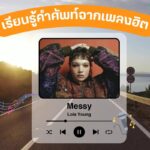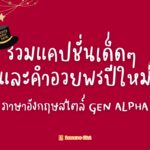Move your mouse over the text to see pop-up windows.
Pronunciation
因为 ( yīn wèi ) 跑步 ( pǎo bù ) 可以 ( kě yǐ ) 将 ( jiāng ) 你 ( nǐ ) 身体 ( shēn tǐ ) 里面 ( lǐ miàn ) 的 ( de ) 水分 ( shuǐ fèn ) 蒸 ( zhēng ) 发 ( fā ) 掉 ( diào ) 而 ( ér ) 让 ( ràng ) 我 ( wǒ ) 不 ( bù ) 那么 ( nà me ) 容易 ( róng yì ) 流泪 ( liú lèi )
因 (いん) (n) (1) cause; factor; (2) {Buddh} (See 縁・えん・5) hetu (direct cause, esp. as opposed to indirect conditions); (3) (See 因明) the basis of one's argument (in hetuvidya); (P) [EDICT] (よすが;よすか(ok)) (n) (1) something to rely on; aid; clue; way; means; (2) someone to rely on; relative; (3) reminder; memento [EDICT] (yīn, ㄧㄣ ) cause; reason; because [CE-DICT] 为 (wéi, ㄨㄟˊ ) as (in the capacity of); to take sth as; to act as; to serve as; to behave as; to become; to be; to do [CE-DICT] (wèi, ㄨㄟˋ ) because of; for; to [CE-DICT] 将 (しょう) (n) commander; general; leader; (P) [EDICT] (jiāng, ㄐㄧㄤ ) (will, shall, "future tense"); ready; prepared; to get; to use [CE-DICT] (jiàng, ㄐㄧㄤˋ ) a general [CE-DICT] 你 身 (むくろ) (n) (dead) body; corpse [EDICT] (み) (n) (1) body; (2) oneself; (3) one's place; one's position; (4) main part; meat (as opposed to bone, skin, etc.); wood (as opposed to bark); blade (as opposed to its handle); container(as opposed to its lid); (P) [EDICT] (shēn, ㄕㄣ ) body; torso; person; life; status; pregnancy; classifier for clothes: suit [CE-DICT] 体 (たい) (n,n-suf) (1) body; physique; posture; (2) shape; form; style; (3) substance; identity; reality; (4) {math} field; (ctr) (5) counter for humanoid forms (e.g. dolls, statues, corpses, etc.) [EDICT] (からだ(P);しんたい(身体)(P)) (n,adj-no) (1) (からだ is a gikun reading of 身体) body; (2) health; (P) [EDICT] (てい) (n) appearance; air; condition; state; form [EDICT] (tǐ, ㄊㄧˇ ) body; form; style; system [CE-DICT] 而 (ér, ㄦˊ ) and; as well as; and so; but (not); yet (not); (indicates causal relation); (indicates change of state); (indicates contrast) [CE-DICT] 让 (ràng, ㄖㄤˋ ) to yield; to permit; to let sb do sth; to have sb do sth [CE-DICT] 我 (わ) ฉัน ข้าพเจ้า กู ข้า [LongdoJP] (が) (n) (1) {Buddh} obstinacy; (2) atman; the self; the ego [EDICT] (われ(P);わ(我;吾);あれ(ok);あ(我;吾)(ok);わぬ(我;吾)(ok);わろ(我)(ok)) (pn,adj-no) (1) I; me; (2) (われ, わ only) oneself; (3) (われ, わ only) (arch) you; (pref) (4) (わ only) (arch) (also 和) prefix indicating familiarity or contempt; (P) [EDICT] (わが) (adj-pn) my; our; one's own; (P) [EDICT] (wǒ, ㄨㄛˇ ) I; me; my [CE-DICT] 不 (ふ) (pref) un-; non-; negative prefix [EDICT] (ぶ) (pref) (1) un-; non-; (2) bad ...; poor ... [EDICT] (bù, ㄅㄨˋ ) (negative prefix); not; no [CE-DICT] 那 (nǎ, ㄋㄚˇ ) variant of 哪; how; which [CE-DICT] (nà, ㄋㄚˋ ) that; those; commonly pr. nei4 before a classifier, esp. in Beijing [CE-DICT] 么 (ma, ㄇㄚ˙ ) interrogative final particle [CE-DICT] (me, ㄇㄜ˙ ) suffix, used to form interrogative 甚麼|什么, what?, indefinite 這麼|这么 thus etc [CE-DICT]






